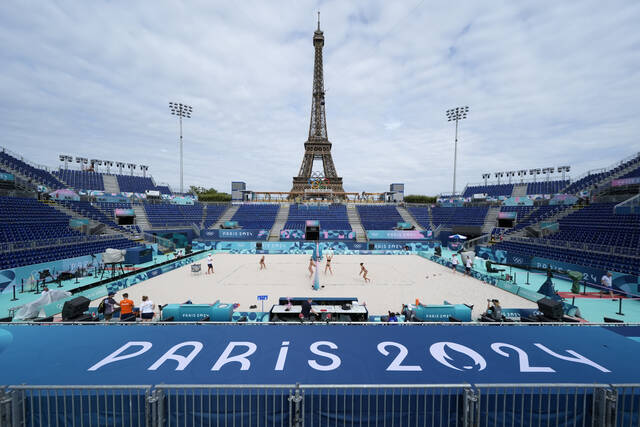Olympic host cities make promises that are all but impossible to keep, and in recent years, the organizers’ wishful thinking about housing and neighborhood redevelopment has been one of the cruelest Olympic disappointments.
As the 2024 Paris Games commence, we are seeing it all over again — displacement, gentrification and the unhoused “voluntarily” lured elsewhere with assurances of help that never materializes. What will it mean for Los Angeles, when the Games arrive in 2028?
In 2017 when Paris and Los Angeles were the last cities standing as potential Olympic sites — Boston, Budapest, Hamburg and Rome all withdrew — the organizers promised to stage Games that sidestepped the vexing social problems that emerged in Seoul, Rio, Tokyo and London.
Paris bidders vowed to rejuvenate the city’s banlieues, replenishing the housing stock by building an Olympic Village for the athletes in Seine-Saint-Denis, one of Paris’ poorest districts, and converting large swaths of it into so-called social housing. In Los Angeles, then-Mayor Eric Garcetti stated on late-night television, “I’m confident by the time the Olympics come, we can end homelessness on the streets of L.A.”
How has it worked in Paris?
In the lead-up to the Games, French security officials are executing a “relocation plan” for the city’s migrants, refugees and unhoused people, expelling them from their encampments and squats — and from fragile connections to jobs and community — and escorting them onto buses that take them to 10 cities around France where temporary shelters and services have supposedly been organized. A government official told the New York Times the number was about 5,000. Human rights groups expect many more of the estimated 100,000 Parisians without steady housing to be exported as far from Olympic venues as possible.
Officially, the relocations are meant to lessen pressure on the asylum application process and to help migrants more efficiently apply for refugee status. But of course, this is all about optics. Most of those banished from Paris won’t qualify for permanent housing in their new locations, and as for asylum status, one lawyer in France calls the busing program “an antechamber to deportation.”
The French government has denied a connection between the Olympics and intensified displacement. But an email from a government official, first reported by the French newspaper L’Equipe, stated that the objective of the mass clearances was to “identify people on the street in sites near Olympic venues” and remove them before the Games commenced. French National Assembly member Aurélie Trouvé told us that the program “is definitely connected to the Games and the need to offer a ‘clean,’ idealized image, even though it means that thousands of people are pushed afar.”
Meanwhile, in Los Angeles, the organizers of LA28 have steered clear of direct Games-associated urban renewal — no new venues will be built under LA28’s auspices and UCLA’s dorms and campus will become the Olympic Village.
Los Angeles Mayor Karen Bass, after checking out Paris’ preparations earlier this year, told a reporter she is merely “hopeful” the Olympics would “be a catalyst to L.A. finally addressing homelessness in a way that is long-term, that eventually ends street homelessness.” She did offer this “major commitment”: The unhoused wouldn’t be moved to the hinterlands during the Games.
In a few weeks, the hoopla and the tally of gold, silver and bronze medals at the Summer Games will give way to a much more consequential reckoning: Paris’ winners and losers. It seems likely its most vulnerable residents won’t have fared well. Los Angeles should take heed.








